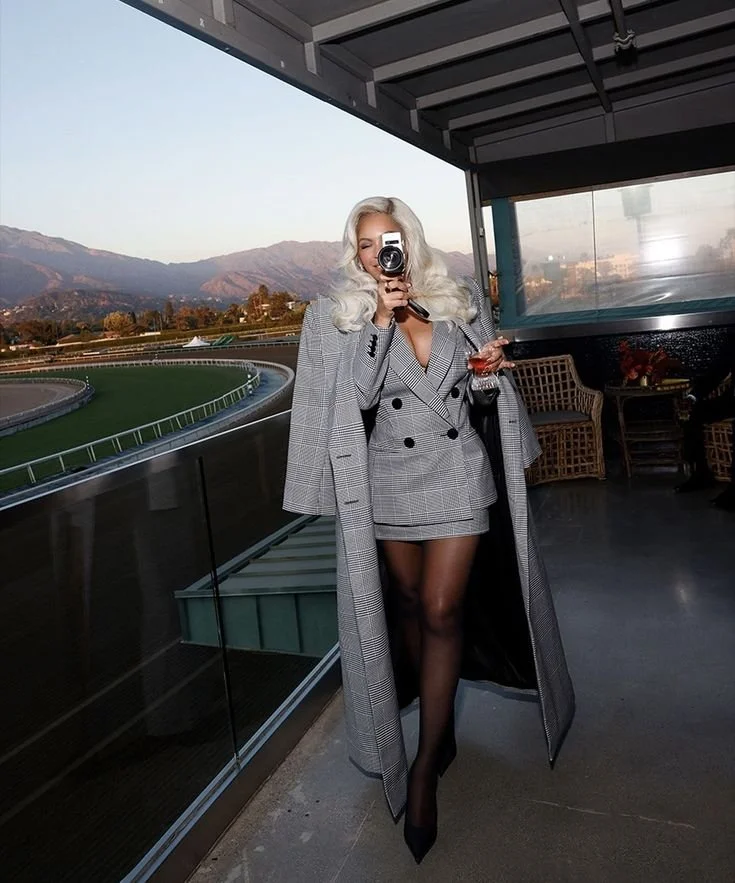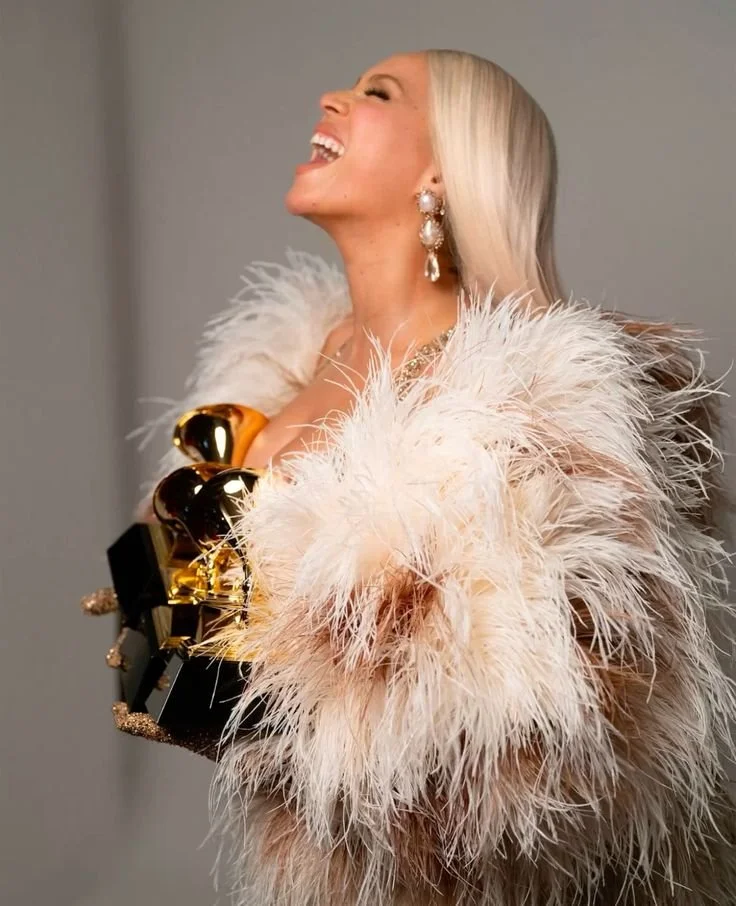Is She Really Unrelatable, or Are You Just Intimidated? The Truth About Comparison and Self-Growth
Image credit: Netflix
We’ve seen this happen over and over.
Meghan Sussex’s new Netflix lifestyle series, With Love, Meghan, was supposed to be a simple, charming look into her life. A love letter to beautiful, cozy living. But instead, it was met with an avalanche of criticism—that it was too polished, too perfect, too unrelatable.
Image Credit: Parkwood
And then there’s Beyoncé, who has been called unrelatable for over a decade. She keeps her private life private, speaks through her art, and moves at a level of excellence that seems almost supernatural. And for that, some people resent her.
But here’s the thing—what do we actually want from women like them?
If they share too much, they’re attention-seeking. If they share too little, they’re out of touch. If they’re messy, they’re lacking class. If they’re too composed, they’re trying too hard to be perfect.
So maybe the issue isn’t them. Maybe the issue is us.
And before we act like this only happens to celebrities, let’s bring it closer to home. Because we do this all the time—not just to public figures, but to women we see every day.
We’re in our luteal phase. Bloated. Moody. Our leggings are suffocating us. Our skin is holding onto every ounce of sodium from that one (yeah right) harmless snack we had yesterday. Life is testing us.
Then we scroll.
And there she is. The most perfect woman.
Her hair? Laid.
Skin? Like glass.
Waist? WHERE.
She’s sipping something aesthetic in an apartment that looks like a Pinterest board manifested itself into real life. Her plants are thriving. Her fridge is color-coordinated. The air in her home is probably infused with wealth and positive affirmations.
We roll our eyes.
Unrelatable.
And just like that, we kind of… despise her.
Our mind starts spiraling.
"She probably FaceTuned that picture within an inch of its life."
"I bet she’s the biggest bitch in real life."
"She is so fake. Who has time to be this perfect all the time?"
We start picking her apart, looking for cracks, telling ourselves stories that make her seem less together. Less impressive. Less… threatening.
Not because she did anything wrong. Not because she personally attacked us. But because, for a second, she made us question ourselves.
What if I could have that life?
Why don’t I feel that effortless?
Why does her glow make me feel like I’m falling behind?
And instead of sitting with those questions, we label her. Unrelatable.
But let’s pause for a second.
What are we really saying? Do we mean she exists in a different reality? Or do we mean she makes us feel something we don’t want to examine too closely? Because if we’re being honest, unrelatable is often just another way of saying, She makes me uncomfortable.
So before we go any further, let’s take a deep breath.
Release that tension in your shoulders.
Loosen your jaw.
Unclench.
Because what if this isn’t about her at all?
Image credit: Netflix
The Unrelatability Trap
Let’s sit with this for a second.
When we call someone unrelatable, what are we actually accusing her of? Is she too talented? Too fortunate? Too at ease in her own skin? Does she have a life so full, so rich, so undeniably hers that we don’t know where to place ourselves in it? And instead of acknowledging that feeling, really sitting with it, we shift the burden onto her.
We do this all the time.
A woman enjoys her life out loud? She’s too much.
A woman refuses to shrink herself for your comfort? She’s doing the most.
A woman values her privacy, her energy, her peace? She thinks she’s better than us.
But let’s go even deeper.
Because when we talk about who gets labeled unrelatable, we start to see a pattern.
Black women and women of color hear it the most.
Image credit: Parkwood
This label follows Black women and other women of color when they step into spaces that challenge the expectation of the white majority. When they ascend to places where their presence is not the default. When they move with an ease and confidence that refuses to seek permission.
They are instantly deemed unrelatable.
Because for some, seeing a Black woman excel, lead, or simply exist without catering to white comfort is unnerving. It disrupts a deeply ingrained belief—whether conscious or not—about who is supposed to occupy certain spaces.
It is a projection. A coded way of saying, I don’t see myself in you, and that makes me uncomfortable.
For generations, women of color—Black women, brown women, Indigenous women, Asian women—have been told they don’t belong in the spaces they rightfully earned. They’re either too much or not enough. Too loud or too quiet. Too ambitious or too invisible.
And yet, they still take up space. They still shine. They still move forward.
So what if, instead of rolling our eyes at these women, we allowed ourselves to learn from them?
What if we stopped forcing women into molds that make us feel comfortable, just so we wouldn’t feel threatened?
What if we sat with our reaction long enough to ask:
"What does she have that I secretly desire?"
The Projection Problem
There’s a reason this kind of discomfort strikes a nerve. We have been conditioned to compare, to measure, to make sure we aren’t falling behind. So when someone disrupts that, when they move through life with a level of ease, joy, or privilege that feels out of reach, it is easier to frame them as out of touch than to ask ourselves why it stings.
We don’t like what we can’t immediately place ourselves into. But that discomfort isn’t a reflection of them. It is a reflection of us.
So let’s ask the real question. If you were truly secure in yourself, would she bother you at all?
Would her self-assurance feel like arrogance? Would her joy feel like an attack? Would her beauty, her wealth, her curation of an undeniably good life feel like a personal offense? Or would you simply let her be?
Let this be your reminder:
It is okay for people you don’t relate to, to live beautifully.
It is okay for those who are different from you to shine. Their glow does not dim yours.
Authenticity vs. Relatability
We say we want authenticity. But do we?
Because here’s the thing. One person’s authenticity might feel completely unrelatable to another.
We are all different people, living different lives, carrying different histories. What feels natural for you might feel foreign to someone else. What feels effortless for her might take years for you to achieve.
No one is the standard of realness that every other person must measure up to.
The truth is, we are all performing in some way. We are all curating. We are all presenting some version of ourselves to the world.
And sometimes, the women we call unrelatable are actually the ones being the most real. The ones who refuse to shrink. The ones who aren’t trying to be a digestible version of themselves. The ones who have bypassed being a general standard of a woman and instead are being their own kind of woman.
So maybe the real question isn’t, Why does she seem unrelatable?
Maybe it’s, Why do I expect her to be?
The Real Work
So next time you feel that knee-jerk reaction, She’s so unrelatable, pause.
Take a deep breath.
Unclench your jaw.
Relax your shoulders.
Release yourself.
Then ask yourself.
Is she really unrelatable, or is she just living in a way I haven’t allowed myself to yet?
Do I actually dislike her, or am I holding a grudge against my own untapped potential?
Is she unrelatable, or have I convinced myself that a woman like that could never exist in my world?
Because real growth isn’t about making someone else small enough to fit inside your comfort zone.
It’s about making yourself big enough to stop caring whether you belong in hers.



